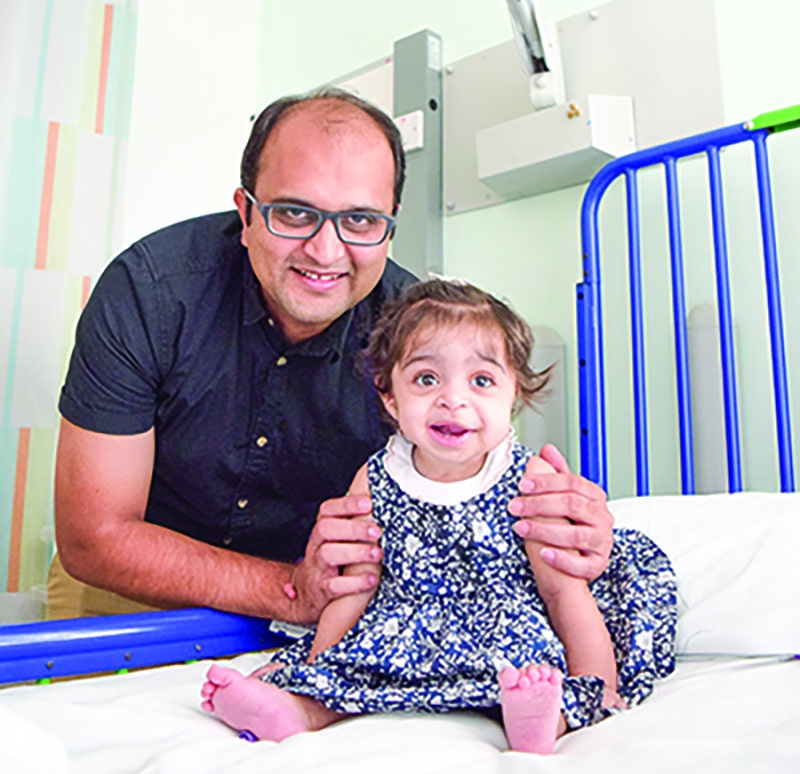Young girl suffering from hyperinsulinaemic hypoglycaemia undergoes successful treatment at UK hospital
A young girl from Bahrain has been given a new lease of life after receiving treatment from Great Ormond Street Hospital in London (GOSH) for hyperinsulinaemic hypoglycaemia (HH). Sarah was born with a congenital complex overgrowth syndrome called Beckwith-Wiedemann syndrome, which occurs in about 1 in 15,000 births. The most common symptoms are overgrowth, asymmetry of growth, large tongue, low blood glucose and abdominal wall defects. Sarah had severe HH, which is one of the known associations of this syndrome. Dr Pratik Shah, Consultant Paediatric Endocrinologist at GOSH, said, “Sarah was initially given treatment to stop insulin production. However, Sarah was not responding to medical therapy. After undergoing a scan, doctors noticed a very unusual large pancreatic cyst on her abdomen and pancreas, initially thought to be a tumour on Sarah’s pancreas.” Sarah then went on to have more detailed scan of the pancreas providing very detailed, three-dimensional images of the body. Explaining the results, Dr Shah said, “Sarah’s scan confirmed she had a large cystic lesion in the head of the pancreas. Sarah had a severe form of hyperinsulinism and after having multidisciplinary team meeting involving a surgeon, radiologist, oncologist, and myself, we recommended undergoing surgery to remove the lesion in the head of the pancreas. “Her hypoglycaemia became much milder after the major reconstructive pancreatic surgery, and can now be managed with feeds and medications.” Professor De Coppi who led the surgery adds, “Sarah had a very rare lesion in a potentially very dangerous area of the pancreas, where the intestine, the liver, the pancreas and their vascular supplies all connect. It was a very challenging surgery but we are very pleased she has recovered well from the procedures.”
Related Posts

